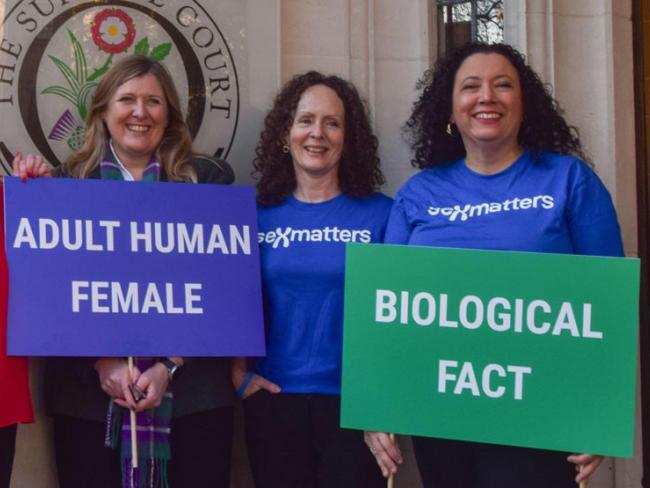28 August 2025

Campaigners from Sex Matters and For Women Scotland outside the Supreme Court, November 2024. Photo Vuk Valcic /Alamy Stock Photo.
A book, The Women Who Wouldn’t Wheesht, has been banned from an exhibition at the National Library of Scotland (NLS). This has attracted widespread criticism.
The exhibition of books, Dear Library, opened in June to mark the centenary of the library. The professional association for librarians is on record against censorship, but the NLS seems to have ignored that.
Selected
The exhibition offers an open reading room filled with books recommended by the public and well-known Scottish figures. The Women Who Wouldn’t Wheesht received double the number of public nominations necessary for inclusion; it was selected to be part of the exhibition.
This book, reviewed in Workers earlier this year, is a collection of essays critical of the discredited SNP administration’s gender self-ID law. But the SNP continue to ignore the Supreme Court’s ruling that gender is biological, not self-identified.
Banned
As documents obtained under a Freedom of Information request show, the NLS’s self-appointed LGBT+ network objected to the book’s inclusion and demanded it be banned from the exhibition.
NLS senior management caved in, concerned about, they said, “the potential impact on key stakeholders” who, they feared, could withdraw support, and “reputational damage”. The ban has attracted widespread condemnation and caused considerable “reputational damage” to the library.
“Bullying culture”
A major donor to the library, Alex Graham, has called on the library to reverse the decision. He has given the NLS around £300,000, including £20,000 to support the Dear Library exhibition, and said he would reconsider his support, citing a “censorious, bullying culture”.
CILIP, the professional association for librarians, is strongly opposed to censorship. It published an intellectual freedom policy in 2024. The president of CILIP’s Scottish arm, writing recently in the institute’s journal, said that “As intellectual freedom is a human right…if you do not believe in human rights for those you dislike or despise, then you may not actually really believe in human rights at all.”
Update 4 September
• The National Library of Scotland has reversed its decision; The Women Who Wouldn't Wheesht will be returned to the Dear Library exhibition. The book’s editors received an apology from the library, and expressed their delight that it is now taking its rightful place in exhibition.
